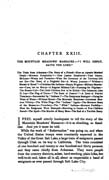
[p. 324]
CHAPTER XXIII.
THE MOUNTAIN MEADOWS' MASSACRE:—" I WILL REPAY, SAITH THE LORD."
The Train from Arkansas—The Story of a Friend—How an Apostle Merited Death—Mormon Hospitality?—How Justice Slumbered—That Sinner, McLean—Weary and Footsore—What the Governor of the Territory Did not Do—The Story of a Frightful Sin—A Weary Journey—" Without a Morsel of Bread "—Christian-like Indians—Empty Wagons—Military Murderers—Corn, but no Mercy—A Regular Military Call—Pursuing the Pilgrims—The Muster-Call—The Little Children Not to be Killed—The Infamous John D. Lee—The Flag of Truce—" The State of Deseret "—A Deed of Fearful Treachery—Surrounded by "Indians!"—The Emigrants Besieged—Dying for Want of Water—Without Bread—The Mountain Meadows—Atrocious Mormon Villainy—The White Flag—The "Indians" Again—The Mormon Story of the Massacre—Treachery—The "White" Indians—Mormon PerfidityHow the Emigrants Were Betrayed—Marching to Death—A Few Children Saved—The Spoil—The Murder of Many Men—The End of a Terrible Story.
I FEEL myself utterly inadequate to tell the story of the Mountain Meadows' Massacre—it is so shocking, so fiendlike. And yet it must be told.
While the work of "Reformation" was going on, and when the United States troops were constantly expected in the Valley of the Great Salt Lake, a large train of emigrants passed through Utah on its way to California. The train consisted of one hundred and twenty or one hundred and thirty persons, and they came chiefly from Arkansas. They were people from the country districts, sober, hard-working, plain folks, but well-to-do and, taken all in all, about as respectable a band of emigrants as ever passed through Salt Lake City.
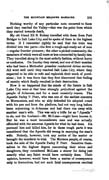
[p. 325]
Nothing worthy of any particular note occurred to them until they reached the Valley—that was the point from which they started towards death.
My old friend Eli B. Kelsey travelled with them from Fort Bridger to Salt Lake City, and he spoke of them in the highest terms. If I remember rightly he said that the train was divided into two parts—the first a rough-and-ready set of men—regular frontier pioneers; the other a picked community, the members of which were all more or less connected by family ties. They travelled along in the most orderly fashion, without hurry or confusion. On Sunday they rested, and one of their number who had been a Methodist preacher conducted divine service. All went well until they reached Salt Lake City, where they expected to be able to refit and replenish their stock of provisions; but it was there that they first discovered that feeling of enmity which finally resulted in their destruction.
Now it so happened that the minds of the Saints in Salt Lake City were at that time strongly prejudiced against the people of Arkansas, and for a most unsaintly reason. The Apostle Parley P. Pratt, who was one of the earliest converts to Mormonism, and who so ably defended his adopted creed with his pen and from the platform, had not very long before been sojourning in Arkansas and had there run away with another man's wife. This was only a trifle for an "Apostle" to do, and the husband—Mr. McLean—might have known it. But he was a most inconsiderate man and was actually offended with the amorous Apostle for what he had done. He pursued him and killed him, for in those rough parts it was considered that the Apostle did wrong in marrying the man's wife. Nobody, however, took any notice of the matter or brought the murderer to trial. The Mormon people, of course, took the side of the Apostle Parley P. Pratt. Sensitive themselves to the highest degree concerning their wives and daughters, they considered McLean a sinner for doing just exactly what any Saint would have certainly done. Their opinion, however, would have been a matter of consequence only to themselves, had not such fatal consequences resulted
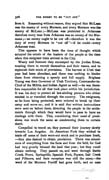
[p. 326]
from it. Reasoning without reason, they argued that McLean was the enemy of every Mormon, and every Mormon was the enemy of McLean;—McLean was protected in Arkansas therefore every man from Arkansas was an enemy of the Mormons;—an enemy ought to be cut off—therefore it was the duty of every Mormon to "cut off "—if he could—every Arkansas man.
This appears to have been the tone of thought which actuated the minds of the leaders of the people at the time when this emigrant train arrived in the City.
Weary and footsore they encamped by the Jordan River, trusting there to recruit themselves and their teams, and to replenish their stock of provisions. The harvest in Utah that year had been abundant, and there was nothing to hinder them from obtaining a speedy and full supply. Brigham Young was then Governor of Utah Territory, Commander-in-Chief of the Militia, and Indian Agent as well:—he was therefore responsible for all that took place within his jurisdiction. It was his duty to protect all law-abiding persons who either resided in or travelled through the country. The emigrants, so far from being protected, were ordered to break up their camp and move on; and it is said that written instructions were sent on before them, directing the people in the settlements through which they would have to pass to have no dealings with them. This, considering their need of provisions, was much the same as condemning them to certain death.
Compelled to travel on, they pursued their journey slowly towards Los Angeles. At American Fork they wished to trade off some of their worn-out stock and to purchase fresh, —they also desired to obtain provisions. There was abundance of everything from the farm and from the field, for God had very greatly blessed the land that year; but they could obtain nothing. They passed on, and went through Battle Creek, Provo, Springville, Spanish Fork, Payson, Salt Creek and Fillmore, and their reception was still the same,—the word of the Mormon Pontiff had gone forth, and no man
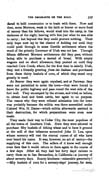
[p. 327]
dared to hold communion or to trade with them. Now and then, some Mormon, weak in the faith or braver or more fond of money than his fellows, would steal into the camp, in the darkness of the night, bearing with him just what he was able to carry; but beyond this they could procure nothing. Their only hope now lay in the chance of holding out until they could push through to some Gentile settlement where the word of the priestly Governor of Utah was not law. Through fifteen different Mormon settlements did they pass, without being able to purchase a morsel of bread. With empty wagons and on short allowance, they pushed on until they reached Corn Creek, where, for the first time in saintly Utah, they met a friendly greeting from the Indians and purchased from them thirty bushels of corn, of which they stood very greatly in need.
At Beaver they were again repulsed, and at Parowan they were not permitted to enter the town—they were forced to leave the public highway and pass round the west side of the fort wall. They encamped by the stream, and tried, as before, to obtain food and fresh cattle, but again to no purpose. The reason why they were refused admission into the town was probably because the militia was there assembled under Colonel Wm. H. Dame—which militia afterwards assisted in their destruction, for which preparations were even now made.
They made their way to Cedar City, the most populous of all the towns of Southern Utah. Here they were allowed to purchase fifty bushels of tithing wheat and to have it ground at the mill of that infamous scoundrel John D. Lee, upon whose memory will rest the eternal curses of all who have ever heard his name. It was, however, no act of mercy—the supplying of this corn. The sellers of it knew well enough even then that it would return to them again in the course of a few days. After all, they had but forty days' rations to carry them on to San Bernardino, in California—a journey of about seventy days. Scanty kindness—miserable generosity! —fifty bushels of corn for a seventy-days' journey, for men,
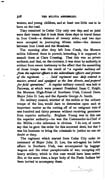
[p. 328]
women, and young children, and at least one little one to be born on the road.
They remained in Cedar City only one day, and so jaded were their teams that it took them three days to travel thence to Iron Creek—a distance of twenty miles; and two days were occupied in journeying fifteen miles—the distance between Iron Creek and the Meadows.
The morning after they left Iron Creek, the Mormon militia followed them in pursuit, intending, it is supposed, to assault them at Clara Crossing. That this was no private outburst, and that, on the contrary, it was done by authority, is evident from sworn testimony to the effect that the assembling of those troops was the result of "a regular military call from the superior officers to the subordinate officers and privates of the regiment. . . Said regiment was duly ordered to muster, armed and equipped as the law directs, and prepared for field operations." A regular military council was held at Parowan, at which were present President. Isaac C. Haight, the Mormon High-Priest of Southern Utah, Colonel Dame, Major John D. Lee, and the Apostle George A. Smith.
No military council, whether of the militia or the ordinary troops of the line, would dare to determine upon such an important matter as the cutting off of an emigrant train of one hundred and thirty persons without receiving permission from superior authority. Brigham Young was in this case the superior authority—he was the Commander-in-Chief of the Militia :—the inference is obvious. I do not, of course, say that he gave the order for this accursed deed, but that it was his business to bring the criminals to justice no one can doubt or deny.
The regiment which started from Cedar City under the command of Major John D. Lee, the sub-agent for Indian affairs in Southern Utah, was accompanied by baggage-wagons and the other paraphernalia of war, excepting only heavy artillery, which in this case would have been useless. But, at the same time, a large body of the Piede Indians had been invited to accompany them.
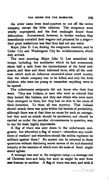
[p. 329]
An order came from head-quarters to cut off the entire Company except the little children. The emigrants were utterly unprepared, and the first onslaught found them defenceless. Accustomed, however, to border warfare, they immediately corralled their wagons and prepared for a siege— their great misfortune was that they had not any water.
Major John D. Lee, finding the emigrants resolute, sent to Cedar City and Washington City for reinforcements, which duly arrived.
The next morning, Major John D. Lee assembled his troops, including the auxiliaries which he had summoned, about half a mile from the intrenchment of the fated emigrants, and then and there informed them, with all the coolness which such an infamous scoundrel alone could muster, that the whole company was to be killed, and only the little children who were too young to remember anything were to be spared.
The unfortunate emigrants did not know who their foes were. They saw Indians, or men who were so colored that they looked like Indians, and they saw others who were more than strangers to them, but they had no clue to the cause of their detention. To them all was mystery. That Indians should attack them was quite within the bounds of probability, although there was at that time no cause for such an outrage; but that such an attack. should be persistent, and should be carried on under the peculiar circumstances in question, was, to say the least, highly improbable.
A flag of truce was sent down to the unfortunate emigrants: but wherefore a flag of truce ?—wherefore any conditions of warfare? and wherefore should the militia regiment be militant against them ? No answer can be returned to these questions without disclosing secret scenes of sin and shameful iniquity at the mention of which even the souls of fiend might stand aghast.
A message was sent to the emigrant camp—a message not of Christian love and help, but such as might be sent from one foeman to another. A flag of truce was sent, and with it
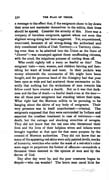
[p. 330]
a message to the effect that, if the emigrants chose to lay down their arms and surrender themselves to the militia, their lives should be spared. Consider the atrocity of this. Here was a company of harmless emigrants, against whom not even the slightest wrong-doing had been suggested. Yet, unquestioned, unaccused, innocent of all wrong-doing, the authorised and duly constituted militia of Utah Territory—a Territory claiming even then to be admitted into the Union as the State of "Deseret"—was encamped against those unoffending citizens, with the cruel, the iniquitous purpose of cutting them off.
Who could rightly tell a story so fearful as this? The emigrant train—men, women, and children fainting and famishing for want of bread and meat. In their pockets was money wherewith the necessaries of life might have been bought, and the generous hand of the Almighty had that year been open so wide and had scattered those necessaries so liberally that nothing but the wickedness of man towards his fellow could have created a dearth. But so it was that darkness and the fear of death—a fearful death even at the door— was all those poor emigrants had standing before their eyes. What right had the Mormon militia to be pursuing, to be hanging about the skirts of any body of emigrants. Their very presence was in itself unauthorised—criminal. The emigrants supposed that they were surrounded by Indians and expected the cruellest treatment in case of resistance—not death, but the outrage and shocking atrocities of savages. They did not know that the red men who threatened their lives and the lives of their helpless wives and infants were brought together at that spot for that same purpose by the counsel of Mormon authorities. They did not know that so many of the appearing red-skins were only painted devils, mocks of humanity, wretches who under the mask of a red-skin's color were eager to perpetrate the foulest of offences—scoundrels a thousand times damned in the opinion of men and by the decree of God.
Day after day went by, and the poor creatures began to despair—who can wonder? The brave men cared little for
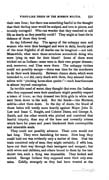
[p. 331]
their own lives; but there was something fearful in the thought that their darling ones would be scalped, and torn in pieces, and brutally outraged! Who can wonder that they resolved to sell life as dearly as they possibly could? They might at least die in defence of those they loved.
So day followed day. The agony of the unhappy men and women who were thus besieged and were in daily, hourly peril of the most frightful of all deaths can be imagined—not told. Meanwhile, what were those atrocious scoundrels doing who were lying in wait for their blood? Some of them were tricked out as Indians; some were in their own proper dresses; and, moreover, real Utes were there. The unhappy victims could not possibly escape—there was time for the murderers to do their work leisurely. Between chance shots, which were intended to, and did, carry death with them, they amused themselves with "pitching horse-shoe quoits:"—such heartlessness is almost beyond conception.
In terrible need of water, they thought that even the Indians who they supposed were their assailants might possibly respect a token of truce; so they dressed two little girls in white and sent them down to the well. But the fiends—the Mormon. militia—shot them down. In the day of doom, the blood of those babes will testify more heavily against Major John D. Lee and Isaac C. Haight, and Colonel Dame, and George A. Smith, and the other wretch who plotted and contrived that fearful iniquity, than any of the base and cowardly crimes which have for years and years blackened their contemptible and miserable souls.
They could not possibly advance. Their corn would not last long. They were famishing for water. How long they could hold out was evidently only a matter of time. Had the train consisted only of men, they might certainly, if with loss, have cut their way through their besiegers and escaped; but with wives and children, and others bound to them by the tenderest ties, such a thing was impossible. They looked and waited. Savage Indians they supposed were their only enemies. Coldly, strangely as they had been treated at the
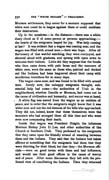
[p. 332]
Mormon settlements, they never for a moment supposed that white men could be in league against them or could meditate their destruction.
Up in the meadows — in the distance— there was a white dusty cloud as if of some person or persons approaching—the hearts of the emigrants leaped for joy. Was help coming at last? It was evident that a wagon was coining near, and the wagon was filled with armed men;—here was hope. After all the misery of that waitful watching, they were overjoyed, and shouted aloud with gladness, and sprang with open arms to welcome their visitors. Little did they suppose that the fiends who then came down, with pale faces and the manners of white men, were the same as those who, painted and decked out like Indians, had been leaguered about their camp with murderous intentions for so many days.
The wagon came near, and was found to be filled with armed men. Surely now, the unhappy emigrants thought, substantial help had come—the authorities of Utah in the neighborhood, whether Gentile or Mormon, had come out in the cause of civilisation and humanity, and succor was at hand.
A white flag was waved from the wagon as an emblem of peace, and in order that the emigrants might know that it was white men and not the red demons of the hills who approached. They did not, indeed, know that these themselves were the monsters who had wronged them all this time and who were even now compassing their death.
Inside that wagon was President Haight, the infamous Mormon Bishop John D. Lee, and other authorities of the Church in Southern Utah. They professed to the emigrants that they came upon the friendly errand of standing between them and the Indians. They said that the Indians had taken offence at something that the emigrants had done, that they were thirsting for their blood, but that they—the Mormon officials — were on good terms with them and had influence, and would use their good offices in the cause of mercy and of peace. After some discussion they left with the professed view of conciliating the Indians, Then they returned
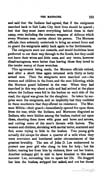
[p. 333]
and said that the Indians had agreed, that if the emigrants marched back to Salt Lake City their lives should be spared; but that they must leave everything behind them in their camp, even including the common weapons of defence which every Western man carries about his person. The Mormon officials then solemnly undertook to bring an armed force and to guard the emigrants safely back again to the Settlements.
The emigrants were not cowards, and would doubtless have preferred to cut their way through to the South, but they could not leave their wives and little ones, and any terms, however disadvantageous, were better than leaving those they loved to the tender mercy of those wretches.
This agreement being made, the Mormon officials retired, and after a short time again returned with thirty or forty armed men. Then the emigrants were marched out—the women and children in the front, and the men following, while the Mormon guard followed in the rear. When they had marched in this way about a mile and had arrived at the place where the Indians were hid in the bushes on each side of the road, the signal was given for the slaughter. So taken by surprise were the emigrants, and so implicitly had they confided in these murderers that they offered no resistance. The Mormon Militia—their guard—immediately opened fire upon them from the rear, while the Indians, and Mormons disguised as Indians, who were hidden among the bushes, rushed out upon them, shooting them down with guns and bows and arrows, and cutting some of the men's throats with knives. The women and children, shrieking with mortal terror, scattered and fled, some trying to hide in the bushes. Two young girls actually did escape for about a quarter of a mile when they were overtaken and butchered under circumstances of the greatest brutality. The son of John D. Lee endeavored to protect one poor girl who clung to him for help; but his father, tearing her from him by violence, blew out her brains. Another unhappy girl is said to have kneeled to this same monster Lee, entreating him to spare her life. He dragged her into the bushes, stripped her naked, and cut her throat
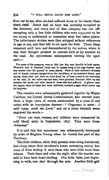
[p. 334]
from ear to ear, after she had suffered worse at his hands than death itself. About half an hour was probably occupied in the butchery, and every soul of that company was cut off, excepting only a few little children who were supposed to be too young to understand or remember what had taken place. The unfortunate victims were then stripped, without reference to age or sex, and then left to rot upon the field. There they remained until torn and dismembered by the wolves, when it was then thought prudent to conceal such as lay nearest to the road. An eye-witness subsequently visiting the spot said:—
The scene of the massacre, even at this late day, was horrible to look upon. Women's hair in detached locks and in masses hung to the sage bushes and was strewn over the ground in many places. Parts of little children's dresses and of female costume dangled from the shrubbery, or lay scattered about, and among these, here and there on every hand, for at least a mile in the direction of the road, by two miles east and west, there gleamed, bleached white by the weather, the skulls and other bones of those who had suffered. A glance into the wagon, when all these had been collected, revealed a sight which never can be forgotten. The remains were subsequently gathered together by Major Carleton, the United States Commissioner, who erected over them a large cairn of stones, surmounted by a cross of red cedar, with an inscription thereon: "Vengeance is mine: I will repay, saith the Lord;" and on a stone beneath were engraved the words:—
"Here 120 men, women, and children were massacred in cold blood, early in September, 1857. They were from Arkansas."
It is said that this monument was subsequently destroyed by order of Brigham Young, when he visited that part of the Territory.
The little children, while their parents were being butchered, had clung about their murderer's knees entreating mercy, but none of them finding it save those who were little more than infants. Their fears and cries the night after the murder are said to have been heart-rending. One little babe, just beginning to walk, was shot through the arm. Another little girl
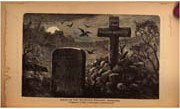
[p. 335]
SCENE OF THE MOUNTAIN MEADOWS' MASSACRE "Vengeance is Mine, I will repay—saith the Lord."

[p. 336]
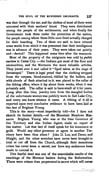
[p. 337]
was shot through the ear, and the clothes of most of them were saturated with their mothers' blood. They were distributed among the people of the settlements, and when finally the Government took them under the protection of the nation, the people among whom these little ones lived actually charged for their boarding. Two of them are said to have uttered some words from which it was presumed that their intelligence was in advance of their years. They were taken out quietly and—buried! This happened some time after the massacre.
Most of the property of the emigrants was sold by public auction in Cedar City:—the Indians got most of the flour and ammunition, and the Mormons the more valuable articles. They jested over it and called it " Spoil taken at the siege of Sevastopol." There is legal proof that the clothing stripped from the corpses, blood-stained, riddled by the bullets, and with shreds of flesh attached to it, was placed in the cellar of the tithing office, where it lay about three weeks, when it was privately sold. The cellar is said to have smelt of it for years. Long after this time, jewelry torn from the mangled bodies of the unfortunate women was publicly worn in Salt Lake City, and every one knew whence it came. A tithing of it all is reported upon very conclusive evidence to have been laid at the feet of Brigham Young.
This is the story—most imperfectly told—for I dare not sketch its foulest details,—of the Mountain Meadows Massacre. Brigham Young, who was at the time Governor of the Territory and also Indian Agent, made no report of the matter. Let that fact of itself speak for his innocence or guilt. Would any other governor or agent in another Territory have been thus silent? John D. Lee, and Dame, and Haight, and the other wretches have never been brought to trial or cut off from the Church, although their monstrous crime has never been a secret, nor have any endeavors been made to conceal it.
This fearful deed was one of the unavoidable results of the teachings of the Mormon leaders during the Reformation. There were crimes then perpetrated in secret which will never
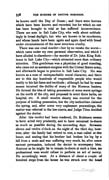
[p. 338]
be known until the Day of Doom; and there were horrors which have been known and recorded, but for which no one has been brought to trial or has suffered inconvenience. There are men in Salt Lake City, who walk about unblushingly in broad daylight, but who are known to be murderers, and whose hands have been again and again dyed with blood under circumstances of the most atrocious cruelty.
There was one cruel murder—but by no means the worst— which came under my own personal observation, and which I have alluded to elsewhere—the murder of Dr. John King Robinson in Salt Lake City—which attracted more than ordinary attention. This gentleman was a physician of good standing, who came out as assistant-surgeon with the United States army, and afterwards began to practice in Salt Lake City. He was known as a man of unimpeachable moral character, and there are to this day hundreds of responsible people who would testify to his fair fame and rectitude; although he had by some means incurred the dislike of many of the Mormon leaders. He formed the idea of taking possession of some warm springs on the north of the city, and proposed to erect there baths, an hospital, etc. A small wooden shanty was erected for the purpose of holding possession, but the city authorities claimed the spring, and, after some very unpleasant proceedings, the matter was referred to the law courts, and Judge Titus decided against the doctor.
After this verdict had been rendered, Dr. Robinson seems to have acted very prudently, and to have remained in-doors as much as possible during the succeeding days. Between eleven and twelve o'clock on the night of the third day, however, after the family had retired to rest, a man called at the house, and stating that his brother had broken his leg by a fall from a mule and was suffering very much, he, after some earnest persuasion, induced the doctor to accompany him. Anxious as he might be to remain in-doors at such a time, no professional man would refuse to perform an act of mercy. He accordingly went. At a distance of about a couple of hundred steps from the house he was struck over the head
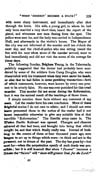
[p. 339]
with some sharp instrument, and immediately after shot through the brain. His wife, a young girl, to whom he had only been married a very short time, heard the report of the pistol, and witnesses saw men fleeing from the spot. The police were sent for, and the body was carried to Independence Hall, and afterwards to the victim's house. The Mayor of the city was not informed of the murder until ten o'clock the next day, and the chief-of-police who was sitting round the fire with his men when news of the murder arrived, went to bed immediately and did not visit the scene of the outrage for three days.
The following Sunday, Brigham Young, in the Tabernacle, publicly suggested that the doctor had probably been murdered by some of the soldiers from Camp Douglas, who were dissatisfied with his treatment when they were under his hands, or else that he had fallen in some gambling transaction—both of which statements, however, were known by every one present to be utterly false. No one was ever punished for this cruel murder. This murder did not occur during the Reformation, but it was the natural result of the teachings of those times.
I simply mention these facts without any comment of my own. Let the reader form his own conclusion. More of these frightful stories I do not care to relate; and r should not even have presented these to the notice of the reader had it not been impossible otherwise to give any suitable idea of that terrible " Reformation." The Gentile army came in. The Dion Pacific Railroad was opened. Changes and chances altered all that had been, and brought into being that which might be and that which finally really was. Instead of looking to the events of three or four thousand years ago, men began to act up to things which were—to think and act in the pnesent, not to dream of the past. The day has gone by—but not far—when the perpetration openly of such deeds was possible; but it is still boasted that when "Deseret" becomes a State the' "Saints" will shew stilt greater Zeal for the Lord!"
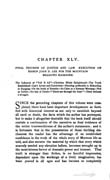
[p. 624]
CHAPTER XLV.
FINAL TRIUMPH OF JUSTICE AND LAW. EXECUTION OF BISHOP JOHN D. LEE FOR THE MOUNTAIN MEADOWS MASSACRE.
The Influence of "Tell It All"—Christian Minds Enlightened—The Truth Established—Lee's Arrest and Conviction—Shooting preferable to Beheading or Hanging—On the brink of Eternity—As Calm as a Summer Morning—Not an Infidel—No fear of Death—" Shoot me through the heart "—Dead without a struggle.
SINCE the preceding chapters of this volume were completed, there have been important developments so fortified with historical interest as not only to establish beyond all cavil or doubt, the facts which the author has portrayed, but to make it altogether desirable that the book itself should contain a continuation of the narrative as final evidence of the entire trustworthiness of the author's statements; and it is fortunate that in the presentation of these thrilling disclosures the reader has the advantage of an established confidence in the truth of the whole story of Mormon life as told, and also secures the material by which that story which scarcely needed any elevation before, becomes wrought up to the most intense fervor of dramatic power and interest. That truth is stranger than fiction, is no fanciful impression, dependent upon the workings of a lively imagination, has been proved in all ages and has become so completely
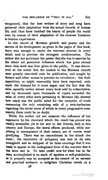
[p. 625]
recognized, that the best writers of story and song have gathered their inspiration from the actual records of human life, and thus have touched the hearts of people the world over, by reason of their adaptation of the choicest literature to human experiences.
In the record of Mormon growth and power, and the secrets of its development, as given in the pages of this book, there was enough to excite the warmest interest in every detail, and to provoke the strongest condemnation. The author did not anticipate the power that she was to exercise by the silent yet persistent influence which has gone abroad since this work was first given to the public. It was discovered at the outset that the leaders in the Mormon church were greatly exercised over its publication, and sought by threats and other means to prevent its circulation; but their opposition, as might reasonably have been expected, only made the demand for it more eager, and the fact that the sales speedily outran almost every book sold by subscription, and by thousands upon thousands of copies exceeded the sales of every other work pertaining to Mormon life, showed how ready was the public mind for the reception of truth concerning the only remaining relic of a twin-barbarism regarding the moral sense of which in every progressive community there could be no doubt.
While the author did not measure the influence of her exposures by the standard which the result has proved was readily attainable, yet to her and to her friends, both in this country and Europe, the moral effects produced, while surprising in consequence of their extent, are of course most gratifying. There was no concealment in the attack she made; the institution of polygamy was met in its own stronghold and so stripped of its false coverings that it was made to appear in the undisguised form of the monster that it has been and is. To take credit now for what has so far been accomplished is no mark of egotism or self-gratulation, as it properly may be accepted as the reward of an earnest and practical endeavor to enlighten Christian minds on a
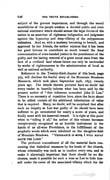
[p. 626]
subject of the gravest importance, and through the moral sensibilities of the people awaken a decided public and even national sentiment which should amuse the legal forces of the nation to an assertion of righteous indignation and judgment against the hypocrisy and deep-villainy of the polygamous defenders. And so, with a modesty becoming to herself, and approved by her friends, the author rejoices that it has been her good fortune to contribute so much toward the final consummation of even-handed justice in the punishment of the guilty, and the lasting removal of a great social stain from the face of a civilized land whose future can only be unclouded by works of righteousness in the administration of local as well as national authority.
Reference to the Twenty-third chapter of this book, page 323, will disclose the fearful story of the Mountain Meadows Massacre, which took place September 24th, 1857, twenty years ago. The details therein pictured have no doubt led every reader to heartily indorse what has been said by the present author of "that infamous scoundrel John D. Lee." There is no necessity of repetition here, since the facts about to be added contain all the additional information of value that is required. Many, no doubt, will be surprised that after such an iniquity as Lee was guilty of he should have been suffered to go unmolested for nearly a score of years, and finally meet with his deserved reward. It is right at this point when in "telling it all," the author of this volume becomes conspicuously recognized as an humble instrument in the hands of an all-wise Providence, in the fullfillment of the prophetic words which were tabulated on the slaughter-field of Mountain Meadows. "VENGEANCE IS MINE, I WILL REPAY SAITH THE LORD."
The profound concealment of all the material facts concerning that diabolical massacre by the heads of the church, whose criminality was such as to caution every one, and to make it alarmingly important that there should be no disclosure, made it possible for such a man as Lee to hide himself under the cover of the associated villainy which for the
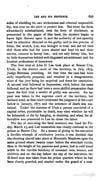
[p. 627]
sake of shielding its own wickedness and criminal responsibility, was ever on the alert to protect him. But when the facts, abundantly substantiated, took the form of disclosure, as presented in the pages of this book, the mystery began to have light thrown upon it, and the authority of law speedily had its attention directed to the guilty, and in due process of time, the wretch, Lee, was brought to trial, and not till then did those who had for years shared and kept his and their secret, consent to betray him; and not only betray him, but to hide themselves behind well-disguised astonishment and the loudest professions of innocence.
The first trial of John D. Lee took place at Beaver City, Utah, in the district court of the territory, in July, 1875, Judge Boreman presiding. At that time the case had been only imperfectly prepared, and resulted in a disagreement, nine of the jury being for acquittal and three for conviction. A second trial followed in September, 1876, before the same tribunal, and as there had been a more skillful preparation than upon the first trial, a verdict of guilty was secured. An appeal was taken to the supreme court of the territory, but without avail, as that court confirmed the judgment of the court below in January, 1877, and the sentence of death was sustained. Under the statutes of Utah a person convicted of a capital crime, punishable by death, may elect whether he will be beheaded, or die by hanging, or shooting, and when the alternative was presented to Lee he chose the latter.
The day of executing the fatal sentence was fixed for Friday, March 23, and Lee meanwhile was closely confined in the prison at Beaver City. As a means of giving to the execution a forcible triumph of retributive justice, it was decided that the shooting should take place at Mountain Meadows upon the same ground where twenty years before the wretched victim, then in the height of his passions and power, had in cold blood aided in the terrible butchery of innocent men, women, and children, and on the day before the day of the execution, the ill-fated man was taken from his prison quarters where he had been closely guarded, and started under the guard of a com-
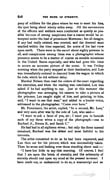
[p. 628]
pany of soldiers for the place where he was to meet his fate, the spot being about ninety miles away. All the movements of the officers and soldiers were conducted as quietly as possible because of strong suspicions that a rescue would be attempted under the lead of prominent Mormons; but all danger, if any had really existed, was averted, and the doomed man reached within the time expected, the scene of his last view upon earth. There were in the escort about eighty persons in all, and conspicuous among them was a photographer whose presence seems to be a matter of course on notable occasions in the United States especially, and who had gone this time to secure an accurate picture of the scene. It was Friday morning when the party stopped at their destination, and Lee was immediately ordered to descend from the wagon in which he rode, which he did without delay.
Marshal Nelson then read the orders of the court regarding the execution, and when the reading was concluded, Lee was asked if he had anything to say. Just at this moment the photographer was arranging his camera to take a picture of the prisoner, Lee caught sight of him, and pointing to him, said, "I want to see that man," and added in a louder voice, addressed to the photographer, "Come over here."
Mr. Fennimore, the artist, replied, "In a second, Mr. Lee," and very soon after was by the side of Lee, who said—
"I want to ask a favor of you, sir; I want you to furnish each of my three wives a copy of the photograph—one to Rachael A., Emma B., and Sarah C."
He had had in all eighteen wives; but only the three named remained, Rachael was the oldest and most faithful to his interests.
The artist consented to do as he had been requested, and Lee then sat for his picture, which was successfully taken. Then he arose and looking over those standing about said:—
"I have but little to say this morning. Of course, I feel that I am upon the brink of eternity, and the solemnity of eternity should rest upon my mind at the present moment. I have made out, or endeavored to do so, a manuscript and an
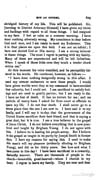
[p. 629]
abridged history of my life. This will be published. Sir, [turning to District Attorney Howard] I have given my views and feelings with regard to all these things. I feel resigned to my fate. I feel as calm as a summer morning. I have done nothing adversely wrong. My conscience is clear before God and man, and I am ready to meet my Redeemer. This it is that places me upon this field. I am not an infidel; I have not denied God or His mercy. I am a strong believer in these things. The most I regret is parting with my family. Many of them are unprotected and will be left fatherless. When I speak of those little ones they touch a tender chord within me."
At this moment his voice trembled, and he perceptibly faltered in his words. He continued, however, as follows:—
"I have done nothing designedly wrong in this affair. I used my utmost endeavors to save those people. I would have given worlds were they at my command to have avoided that calamity, but I could not. I am sacrificed to satisfy feelings and am used to gratify parties; but I am ready to die. I have no fear of death. It has no terrors for me; and no particle of mercy have I asked for from court or officials to spare my life. I do not fear death. I shall never go to a worse place than the one I am now in. I have said it to my family, and I will say it to-day, that the government of the United States sacrifices their best friend, and that is saying a great deal, but it is true. I am a true believer in the gospel of Jesus Christ, do not believe everything that is now practiced and taught by Brigham Young. I do not agree with him. I believe he is leading his people astray. But I believe in the gospel as taught in its purity by Joseph Smith in former days. I have my reasons for saying this. I used to make this man's will my pleasure (evidently alluding to Brigham Young), and did so for thirty years. See how and what I have come to this day I I have been sacrificed in a cowardly, dastardly manner. There are thousands of people in the church—honorable, good-hearted—whom I cherish in my heart. I regret to leave my family. They are near and dear
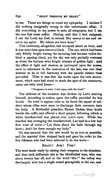
[p. 630]
to me. These are things to rouse my sympathy. I declare I did nothing designedly wrong in this unfortunate affair. I did everything in my power to save all emigrants, but I am the one that must suffer. Having said this I feel resigned. I ask the Lord, my God, to extend His mercy to me and receive my spirit. My labors are here done."
This ceremony, altogether, had occupied about an hour, and it was now close upon eleven o'clock. The sun, which had been only fitfully bright during the morning, had become veiled behind a passing cloud, yet the sky was only partially overcast as down the horizon were bright streaks of golden light; and the effect of light and shadow, as portrayed upon the scene, soon to culminate in the execution of the law, was one that seemed to be in full harmony with the painful silence that prevailed. Then it was that the words upon the rude monument, which once had stood to mark the spot of the massacre, came out with vivid force—
"Vengeance is mine, I will repay saith the Lord."
The stillness of the occasion was broken by Lee's seating himself, according to orders, upon the coffin provided for his burial. He tried to appear calm as he faced the squad of soldiers whose rifles were soon to discharge their contents into his body. A Methodist preacher, Parson Stokes, then knelt beside the coffin and offered a short prayer, following which a white handkerchief was placed over Lee's eyes. While the marshal was arranging the handkerchief, Lee said in a low but firm tone of voice—" Let them shoot the balls through my heart; don't let them mangle my body."
He was assured that the aim would be as true as possible, and the marshal then stepped back and gave his order to the five riflemen who had been selected to do the work—
READY! AIM! FIRE!
The men made ready by raising their weapons to the shoulder, and then took deliberate aim at the blindfolded man, who was about twenty feet off, and at the word "fire!" the volley was discharged with but a single sound perceptible to the ear, and
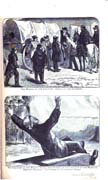
[p. unnumbered]
THE MORNING OF THE EXECUTION.—ARRIVAL OF THE PROCESSION
THE EXECUTION OF THE MOROMON BISHOP, JOHN D. LEE, ON THE VERY SPOT OF THE MOUNTAIN MEADOWS MASSACRE—LAST SCENE IN THE TERRIBLE DRAMA.
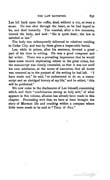
[p. 631]
Lee fell back upon the coffin, dead, without a cry, or even a moan. He was shot through the heart, as he had hoped to be, and died instantly. The marshal, after a few moments, viewed the body, and said: " He is quite dead; the law is satisfied at last."
The body was subsequently delivered to relatives residing in Cedar City, and was by them given a respectable burial.
Lee, while in prison, after his sentence, devoted a great part of his time to writing. He was a good composer and fair writer. There was a prevailing impression that he would leave some record implicating others in the great crime, but the manuscript was closely concealed, so that it was not until his own admission, at the scene of execution, that all doubt was removed as to the purport of the writing he had left. "I have made out," he said, "or endeavored to do so, a manuscript and an abridged history of my life," and he added, "this will be published."
We now come to the disclosures of Lee himself, concerning which, and their " confirmation strong as holy writ," of what appears in this volume, allusion has already been made in this chapter. Proceeding with that, we have at least brought the story of Mormon life and cruelties within a compass where little more needs to be said to "TELL IT ALL."
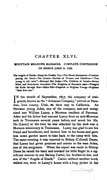
[p. 632]
CHAPTER XLVI.
MOUNTAIN MEADOWS MASSACRE. COMPLETE CONFESION OF BISHOP JOHN D. LEE.
The Angels of Death—Keep the Powder Dry—The Blood Atonement—Contemplating the Deed—The Attack—Shrieks of Women and Children—Too young to tell tales"—Betrayal like Judas—The Children of Israel—Seven killed and forty-seven wounded—The Kingdom of Heaven's sake—Plunged his Knife through Her—Idaho Bill—Dispatch to Brigham Young—Brigham "feels first rate."
IN the month of September, 1857, the company of emigrants, known as the "Arkansas Company," arrived at Parowan, Iron county, Utah, on their way to California. At Parowan young Aden, one of the company, saw and recognized one William Laney, a Mormon resident of Parowan. Aden and his father had rescued Laney from an anti-Mormon mob in Tennessee several years before, and saved his life. He (Laney) at the time he was attacked by the mob was a Mormon missionary in Tennessee. Laney was glad to see his friend and benefactor, and invited him to his house and gave him some garden sauce to take back to the camp with him. The same evening, it was reported to Bishop (Colonel) Dame, that Laney had given potatoes and onions to the man Aden, one of the emigrants. When the report was made to Bishop Dame he raised his hand and crooked his little finger in a significant manner to one Barney Carter, his brother-in-law, and one of the "Angels of Death." Carter, without another word, walked out, went to Laney's house with a long picket in his
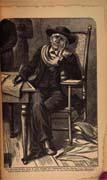
[p. unnumbered]
THE MORMON BISHOP, JOHN D. LEE, WRITING HIS CONFESSION IN BEAVER CITY PENITENTIARY. WHILE UNDER SENTENCE OF DEATH FOR COMPLICITY IN THE MOUNTAIN MEADOWS MASSACRE.
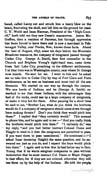
[p. 633]
hand, called Laney out and struck him a heavy blow on the head, fracturing his skull, and left him on the ground for dead. C. Y. Webb and Isaac Naoman, President of the "High Council," both told me they saw Dame's manœuvres. James McGuffee, then a resident of Parowan, but through oppression has been forced to leave there and is now a merchant in Pahranagat Valley, near Pioche, Nev., knows these facts. About the last of August, 1857, some ten days before the Mountain Meadows massacre, the company of emigrants passed through Cedar City. George A. Smith, then first counsellor in the Church and Brigham Young's right-hand man, came down from Salt Lake City, preaching to the different settlements. I at that time was in Washington county, near where St. George now stands. He sent for me. I went to him and he asked me to take him to Cedar City by way of Fort Clara and Pinto settlements, as he was on business and must visit all the settlements. We started on our way up through the canyon. We saw herds of Indians, and he (George A. Smith) remarked to me that these Indians, with the advantages they had of the rocks, could use up a large company of emigrants, or make it very hot for them. After pausing for a short time he said to me, "Brother Lee, what do you think the brethren would do if a company of emigrants should come down through here making threats? Don't you think they would pitch into them?" I replied that "they certainly would." This seemed to please him, and he again said to me:—"And you really think the brethren would pitch into them?" "I certainly do," was my reply, "and you had better instruct Colonel Dame and Haight to tend to it that the emigrants are permitted to pass, if you want them to pass unmolested." He continued:—"I asked Isaac (meaning Haight) the same question, and he answered me just as you do, and I expect the boys would pitch into them." I again said to him that he had better say to Gov. Young that if he wants emigrant companies to pass without molestation that he must instruct Col. Dame or Major Haight to that effect, for if they are not ordered otherwise they will use them up by the help of the Indians. He told the people
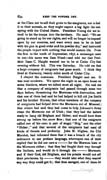
[p. 634]
at the Clara not to sell their grain to the emigrants, nor to feed it to their animals, as they might expect a big fight the next spring with the United States. President Young did not intend to let the troops into the territory. He said: "We are going to stand up for our rights, and will no longer be imposed upon by our enemies, and want every man to be on hand with his gun in good order and his powder dry," and instructed the people to part with nothing that would sustain life. From the first to the tenth of September, 1857, a messenger came to me—his name was Sam Wood—and told me that President Isaac C. Haight wanted me to be at Cedar City that evening without fail. This was Saturday. He told me that a large company of emigrants had gone south. I think they lived at Harmony, twenty miles south of Cedar City.
I obeyed the summons. President Haight met me. It was near sundown. We spent the night in an open house on some blankets, where we talked most all night. He told me that a company of emigrants had passed through some two days before, threatening the Mormons with destruction, and that one of them had said he had helped to kill old Joe Smith and his brother Hyrum, that other members of the company of emigrants had helped drive the Mormons out of Missouri; that others had said they had come to help Johnson's Army clean the Mormons out of Utah; that they had the halters ready to hang old Brigham and Heber, and would have them strung up before the snow flew; that one of the emigrants called one of his oxen (a pair of stags) "Brig." and the other "Heber;" and that several of the emigrants had used all kinds of threats and profanity. John M. Higbee, the City Marshal, had informed them that it was a breach of the city ordinance to use profane language, whereupon one of them replied that he did not care a——for the Mormon laws or the Mormons either; that they had fought their way through the Indians, and would do it through the——Mormons, and if their God, old Brigham, and his priests would not sell their provisions, by——they would take what they wanted any way they could get it; that thus enraged, one of them let
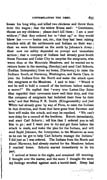
[p. 635]
loose his long whip, and killed two chickens and threw them into the wagon; that the widow Evans said: "Gentlemen, those are my chickens; please don't kill them; I am a poor widow;" that they ordered her to "shut up," or they would blow her——brains out, etc., that they had been raising trouble with all the settlements and Indians on their way; that we were threatened on the north by Johnson's Army; that now our safety depended on prompt and immediate action; that a company of Indians had already gone South from Parowan and Cedar City to surprise the emigrants, who were then at the Mountain Meadows, and he wanted me to return home in the morning, (Sunday,) and send Carl Schurtz, (Indian Interpreter,) from my home, (Harmony,) to raise the Indians South, at Harmony, Washington, and Santa Clara, to join the Indians from the North and make the attack upon the emigrants at the Meadows. I said to him: "Would it not be well to hold a council of the brethren before making a move?" He replied that "every true Latter-Day Saint that regarded their covenants knew well their duty, and that the company of emigrants had forfeited their lives by their acts," and that Bishop P. K. Smith (Klingensmith,) and Joel White had already gone by way of Pinto, to raise the Indians in that direction, and those that have gone from Parowan and here will make the attack, and may be repulsed. "We can't now delay for a council of the brethren. Return immediately, and start Carl Schurtz; tell him that I ordered you to tell him to go; and I want you to try and get there before the attack is made, and make the plan for the Indians, and will send Sephi Johnson, the Interpreter, to the Meadows as soon as he can be got to help Carl Schurtz manage the Indians." I did just as I was ordered. The Indians from the North and about Harmony, had already started for the Meadows before I reached home. Schurtz started immediately to do his part.
I arrived at home in the night, and remained till morning. I thought over the matter, and the more I thought the more my feelings revolted against such a horrid deed. Sleep had
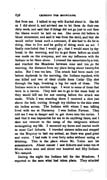
[p. 636]
fled from me. I talked to my wife Rachel about it. She felt as I did about it, and advised me to let them do their own dirty work, and said that if things did not go just to suit them the blame would be laid on me. She never did believe in blood atonement, and said it was from the devil, and that she would rather break such a covenant, if she had to die for so doing, than to live and be guilty of doing such an act. I finally concluded that I would go; that I would start by daybreak in the morning, and try to get there before an attack was made on the company, and use my influence with the Indians to let them alone. I crossed the mountains by a trail, and reached the Meadows between nine and ten in the morning, the distance from my place being about twenty-five miles. But I was ton late. The attack had been made jut before daybreak in the morning, the Indians repulsed, with one killed and two of their chiefs from Cedar City shot through the legs, breaking a leg for each of them. The Indians were in a terrible rage. I went to some of them that were in a ravine. They told me to go to the main body or they would kill me for not coming before the attack was made. While I was standing there I received a shot just above the belt, cutting through my clothes to the skin some six inches across. The Indians with whom I was talking lived with me at Harmony. I was Indian Farmer. They told me I was in danger and to get down into the ravine. I said that it was impossible for me to do anything there, and I dare not venture to the camp of the emigrants without endangering my life. I mounted my horse and started south to meet Carl Schurtz. I traveled sixteen miles and stopped on the Megotsy to bait my animal, as there was good grass and water. I had rode it over forty miles without eating or drinking. This is the place where Mr. Tobin met his assassinators. About sunset I saw Schurtz and some ten or fifteen white men and about one hundred and fifty Indians. We camped.
During the night the Indians left for the Meadows. I reported to the men what had taken place. They attacked
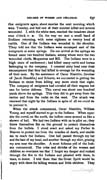
[p. 637]
the emigrants again, about sunrise the next morning, which was Tuesday, and had one of their number killed and several wounded. I, with the white men, reached the meadows about one o'clock P. M. On the way we met a small band of Indians returning, with some eighteen or twenty head of cattle. One of the Indians was wounded in the shoulder. They told me that the Indians were encamped east of the emigrants at some springs. On our arrival at the springs we found some two hundred Indians, among whom were the two wounded chiefs, Moqueetus and Bill. The Indians were in a high state of excitement; had killed many cattle and horses belonging to the company. I counted sixty head near their encampment that they had killed in revenge for the wounding of their men. By the assistance of Oscar Hamblin, (brother of Jacob Hamblin,) and Schurtz, we succeeded in getting the Indians to desist from killing any more stock that night. The company of emigrants had corraled all their wagons but one for better defense. This corral was about one hundred yards above the springs. This they did to get away from the ravine and from the rocks on the west. The attack was renewed that night by the Indians in spite of all we could do to prevent it.
When the attack commenced, Oscar Hamblin, William Young, and myself started to go to the Indians. When opposite the corral, on the north, the bullets came around us like a shower of hail. We had two Indians with us to pilot us; they threw themselves flat on the ground to protect themselves from the bullets. I stood erect and asked my Father ih Heaven to protect me from the missiles of death, and enable me to reach the Indians. One ball passed through my hat and the hair of my head, and another through my shirt, grazing my arm near the shoulder. A most hideous yell of the Indians commenced. The cries and shrieks of the women and children so overcame me that I forgot my danger and rushed through the fire to the Indians and pleaded with them, in tears, to desist. I told them that the Great Spirit would be angry with them for killing Women and little children. They
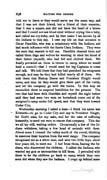
[p. 638]
told me to leave or they would serve me the same way, and that I was not their friend, but a friend of their enemies; that I was a squaw, and did not have the heart of a brave, and that I could not see blood shed without crying like a baby, and called me cry-baby, and by that name I am known by all the Indians to this day. I owe my life on that occasion to Oscar Hamblin, who was a missionary with the Indians, and had much influence with the Santa Clara Indians. They were the ones that wanted to kill me. Hamblin shamed them and called them dogs and wolves for wanting to shed the blood of their father (myself), who had fed and clothed them. We finally prevailed on them to return to camp, where we would hold a council;. that I would send for big Captains to come and talk. We told them that they had punished the emigrants enough, and may be they had killed nearly all of them. We told them that Bishop Dame and President Haight would come, and may be they would give them part of the cattle, and let the company go with the teams. In this way we reconciled them to suspend hostilities for the present. The two that had been with Hamblin and myself the night before said they had seen two men on horseback come out of the emigrant's camp under full speed, and that they went toward Cedar City.
Wednesday morning I asked a man—I think his name was Edwards—to go to Cedar City and say to President Haight, for God's sake, for my sake, and for the sake of suffering humanity, to send out men to rescue that company. This day we all lay still, waiting orders. Occasionally a few of the Indians withdrew, taking a few head of animals with them. About noon I crossed the valley north of the corral, thinking to examine their location from the west range. The company recognized me as a white man, and sent two little boys, about four years old, to meet me. I hid from them, fearing the Indians, who discovered the children. I called the Indians, who wanted my gun or ammunition to kill them. I prevailed with them to let the children go back to camp, which they very soon did when they saw the Indians. I crept up behind some
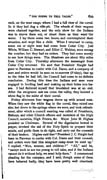
[p. 639]
rock; on the west range, where I had a full view of the corral. In it they had dug a rifle-pit. The wheels of their wagons were chained together, and the only show for the Indians was to starve them out, or shoot them as they went for water. I lay there some two hours, and contemplated their situation, and wept like a child. When I returned to camp, some six or eight men had come from Cedar City. Joel White, William C. Stewart, and Elliot C. Weldon, were among the number, but they had no orders. They had come merely to see how things were. The Meadows are about fifty miles from Cedar City. Thursday afternoon the messenger from Cedar City returned. He said that President Haight had gone to Parowan to confer with Col. Dame, and a company of men and orders would be sent on to-morrow (Friday), that up to the time he had left, the Council had come to no definite conclusion. During this time the Indians and men were engaged in broiling beef and making up their hides into lassos. I had flattered myself that bloodshed was at an end. After the emigrants saw me cross the valley, they hoisted a white flag in the midst of their corral.
Friday afternoon four wagons drove up with armed men. When they saw the white flag in the corral, they raised one also, but drove to the springs where we were, and took refreshment, after which a council meeting was called of Presidents, Bishops, and other Church officers and members of the High Council, societies, High Priests, &c. Major John M. Higbee presided as Chairman. Several of the dignitaries bowed in prayer, invoked the aid of the Holy Spirit to prepare their minds, and guide them to do right, and carry out the counsels of their leaders. Higbee said that "President J. C. Haight had been to Parowan to confer with Col. Dame and their counsel, and orders were that this emigrant camp must be used up." I replied, "Men, women, and children?" "All," said he, "except such as are too young to tell tales, and if the Indians cannot do it without help, we must help them." I commenced pleading for the company, and I said, though some of them have behaved badly, they have been pretty well chastised.
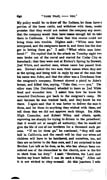
[p. 640]
My policy would be to draw off the Indians, let them have a portion of the loose cattle, and withdraw with them, under promise that they would not molest the company any more; that the company would then have teams enough left to take them to California. I told them that this course could not bring them into trouble. Higbee said: "White men have interposed, and the emigrants know it and there lies the danger in letting them go." I said: "What white man interfered?" He replied that in the attack on Tuesday night two men broke out of the corral and started for Cedar City on horseback; that they were met at Richey's Spring by Stewart, Joel White, and another man, whose name has passed from me. Stewart asked the two men their names when they met at the spring, and being told in reply by one of the men that his name was Aden, and that the other was a Dutchman from the emigrant's company, Stewart shoved a pistol to Aden's breast, and killed him, saying, "Take that,——you." The other man [the Dutchman] wheeled to leave as Joel White fired and wounded him. I asked him how he knew the wounded Dutchman got back to the emigrant's camp. He said because he was tracked back, and they knew he was there. I again said that it was better to deliver the man to them, and let them do anything they wished with them, and tell them that we did not approve such things. Ira Allen, High Councilor, and Robert Wiley, and others, spoke, reproving me sharply for trying to dictate to the priesthood; that it would set at naught all authority; that he would not give the life of one of our brethren for a thousand such persons. "If we let them go," he continued, "they will raise hell in California, and the result will be that our wives and children will have to be butchered, and ourselves, too, and they are no better to die than ours, and I am surprised to hear Brother Lee talk as he does, as be, who has always been considered one of the staunchest in the church, now is the first to shirk from his duty." I said: "Brethren, the Lord must harden my heart before I can do such a thing." Allen said it is not wicked to obey monad. At this juncture I with-
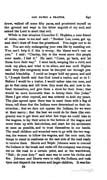
[p. 641]
drew, walked off some fifty paces, and prostrated myself on the ground and wept in the bitter anguish of my soul, and asked the Lord to avert that evil.
While in that situation Councilor C. Hopkins, a near friend of mine, came to me and said: "Brother Lee, come, get up, and don't draw off from the priesthood. You ought not to do so. You are only endangering your own life by standing out. You can't help it, if this is wrong: the blame won't rest on you." I said: "Charley, this is the worst move this people ever made; I feel it." He said: "Come, go back, and let them have their way." I went back, weeping like a child, and took my place, and tried to be silent, and was until Higbee said they (the emigrants) must be decoyed out through pretended friendship. I could no longer hold my peace, and said I, "Joseph Smith said that God hated a traitor, and so do I: Before I would be a traitor, I would rather take ten men, and go to that camp and tell them they must die, and now to defend themselves, and give them a show for their lives; that would be more honorable than to betray them like Judas." Here I got other reproof, and was ordered to hold my peace. The plan agreed upon there was to meet them with a flag of truce, tell them that the Indians were determined on their destruction; that we dare not oppose the Indians, for we were at their mercy; that the best we could do for them (the emigrants) was to get them and what few traps we could take in the wagons, to lay their arms in the bottom of the wagon and cover them up with bed-clothes, and start for the settlement as soon as possible, and to trust themselves in our hands. The small children and wounded were to go with the two wagons, the women to follow the wagons, and the men next, the troops to stand in readiness on the east side of the road ready to receive them. Shurtz and Nephi Johnson were to conceal the Indians in the brush and rocks till the company was strung out on the road to a certain point, and at the watchword, "Halt; do your duty!" each man was to cover his victim and fire. Johnson and Shurtz were to rally the Indians, and rush upon and dispatch the women and larger children. It was fur-
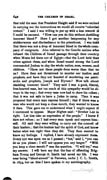
[p. 642]
ther told the men that President Haight said if we were united in carrying out the instructions we would all receive "celestial reward." I said I was willing to put up with a less reward if I could be excused. "How can you do this without shedding innocent blood?" Here I got another lampooning for my stubbornness and disobedience to the priesthood. I was told that there was not a drop of innocent blood in the whole company of emigrants. Also referred to the Gentile nations who refused the Children of Israel passage through their country when Moses led them out of Egypt—that the Lord held that crime against them, and when Israel waxed strong the Lord commanded Joshua to slay the whole nation, men, women, and children. "Have not these people done worse than that to us? Have they not threatened to murder our leaders and prophets, and have they not boasted of murdering our patriarchs and prophets, Joseph and Hyrum? Now talk about shedding innocent blood." They said I was a good, liberal, free-hearted man, but too much of this sympathy would be always in the way; that every man now had to show his colors; that it was not safe to have a Judas in camp. Then it was proposed that every man express himself; that if there was a man who would not keep a close mouth, they wanted to know it then. This gave me to understand what I might expect if I continued to oppose. Major Higbee said: "Brother Lee is right. Let him take an expression of the people." I knew I dare not refuse; so I had every man speak and express himself. All said they were willing to carry out the counsel of their leaders; that the leaders had the spirit of God, and knew better what was right than they did. They then wanted to know my feelings. I replied, I have already expressed them. Every eye was upon me as I paused; "but," said I, "you can do as you please; I will not oppose you any longer." "Will you keep a close mouth?" was the question. "I will try," was my answer. I will here say that the fear of offending Brigham Young and George A. Smith had saved my life. I was near being "blood-atoned" in Parowan, under J. C. L. Smith, in 1854, but on this I have spoken in my autobiography.
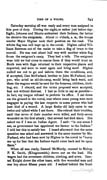
[p. 643]
Saturday morning all was ready and every man assigned to his post of duty. During the night, or rather just before daylight, Johnson and Shurtz ambushed their Indians, the better to deceive the emigrants. About It o'clock, A. M., the troops under Major Higbee took their position on the road. The white flag was still kept up in the corral. Higbee called William Bateman out of the ranks to take a flag of truce to the corral. He was met about half way with another white flag from the emigrant's camp. They had a talk. The emigrant was told we had come to rescue them if they would trust us. Both men with flags returned to their respective places and reported, and were to meet again and bring word. Higbee called me out to go and inform them the conditions, and, if accepted, Dan McFarland, brother to John McFarland, lawyer, who acted as aid-de-camp, would bring back word, and then the wagons would be sent for the firearms, children, clothing, etc. I obeyed, and the terms proposed were accepted, but not without distrust. I had as little to say as possible—in fact, my tongue refused to perform its office. I sat down on the ground in the corral, near where some young men were engaged in paying the last respects to some person who had just died of a wound. A large fleshy old lady came to me twice and talked while I sat there. She related their troubles, said that seven of their number were killed, and forty-seven wounded on the first attack; that several had died since. She asked me if I was an Indian Agent. I said: "in one sense I am, as government has appointed me farmer to the Indians." I told her this to satisfy her. I heard afterward that the same question was asked and answered in the same manner by McFarland, who had been sent by Higbee to the corral to "hurry me up for fear that the Indians would come back and be upon them."
When all was ready, Samuel McMurdy, counsel to Bishop P. K. Smith, (Klingensmith,) drove out on the lead. His wagon had the seventeen children, clothing, and arms. Samuel Knight drove the other team, with five wounded men and one boy about fifteen years old. I walked behind the front
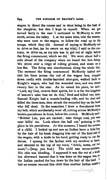
[p. 644]
wagon to direct the course and to shun being in the heat of the slaughter, but this I kept to myself. When we got turned fairly to the east I motioned to McMurdy to steer north, across the valley. I, at the same time, told the women, who were next to the wagon, to follow the road up to the troops, which they did. Instead of saying to McMurdy not to drive so fast, (as he swore on my trial,) I said to the contrary, to drive on, as my aim was to get out of sight before the firing commenced, which we did.' We were about half a mile ahead of the company when we heard the first firing. We drove over a ridge of rolling ground, and down on a low flat. The firing was simultaneous along the whole line. The moment the firing commenced McMurdy halted and tied his lines across the rod of the wagon box, stepped down coolly with double-barreled shot-gun, walked back to Knight's wagon, who had the wounded men, and was about twenty feet in the rear. As he raised his piece, he said: " Lord, my God, receive their spirits, for it is for the kingdom of heaven's sake that we do this," fired and killed two men. Samuel Knight had a muzzle-loading rifle, and he shot and killed the three men, then struck the wounded boy on the head who fell dead. In the meantime I drew a five-shooter from my belt, which accidentally went off, cutting across McMurdy's buskin pantaloons in front, below the crotch. McMurdy said: "Brother Lee, you are excited; take things cool, you was near killin' me. Look where the ball cut," pointing to the place in his pantaloons. At this moment, I heard the scream of a child. I looked up and saw an Indian have a little boy by the hair of his head, dragging him out of the hind end of the wagon, with a knife in his hand, getting ready to cut his throat. I sprang for the Indian with my revolver in band, and shouted to the top of my voice, "Arick, ooma, cot too sooet,"—(stop, you fool.) The child was terror-stricken. His chin was bleeding. I supposed it was the cut of a knife but afterward learned that it was done on the wagon box, as the Indian yanked the boy down by the hair of the head. I had no sooner rescued this child than another Indian seized a
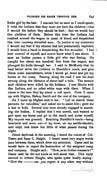
[p. 645]
little girl by the hair. I rescued her as soon as I could speak; I told the Indians that they must not hurt the children—that I would die before they should be hurt; that we would buy the children of them. Before this time the Indians had rushed around the wagon in quest of blood, and despatched the two runaway wounded men. In justice to my statement I would say that if my shooter had not prematurely exploded, I would have a hand in despatching the five wounded. I had lost control of myself, and scarce knew what I was about. I saw an Indian pursue a little girl who was fleeing. He caught her about one hundred feet from the wagon, and plunged his knife through her. I said to McMurdy that he had better drive the children to Hamblin's ranch, and give them some nourishment, while I would go down and get my horse at the camp. Passing along the road I saw the dead strung along the distance of about half a mile. The women and children were killed by the Indians. I saw Shurtz with the Indians, and no other white man with them. When I came to the men they lay about a rod apart. Here I came up with Higbee, Bishop Smith and the rest of the company.
As I came up Higbee said to me: "Let us search these persons for valuables," and asked me to assist him; gave me a hat to hold. Several men were already engaged in searching the bodies. I replied that I was unwell, and wanted to get upon my horse and go to the ranch and nurse myself. My request was granted. Reaching Hamblin's ranch—being heartsick and worn out—I lay down on my saddle-blanket, and slept, and knew but little of what passed during the night.
About daybreak in the morning, I heard the voices of Col. Dame and Isaac C. Haight. I heard some very angry words pass between them, which drew my attention. Dame said he would have to report the "destruction of the emigrant camp and company. Haight said: "How, as an Indian massacre?" Dame said he did not know so well about that. This reply seemed to irritate Haight, who spoke quite loudly, saying: "How the——can you report it any other way without
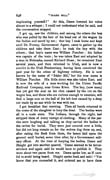
[p. 646]
implicating yourself?" At this, Dame lowered his voice almost to a whisper; I could not understand what he said, and the conversation stopped.
I got up, saw the children, and among the others the boy who was pulled by the hair of his head out of the wagon by the Indian and saved by me; that boy I took home and kept until Dr. Forney, Government Agent, came to gather up the children and take them East; he took the boy with the others; that boy's name was William Fancher; his father was captain of the train; he was taken East and adopted by a man in Nebraska, named Richard Sloan; he remained East several years, and then returned to Utah, and is now a convict in the Utah Penitentiary, having been convicted the past year for the crime of highway robbery. He is now known by the name of "Idaho Bill," but his true name is William Fancher. His little sister was also taken East, and is now the wife of a man working for the Union Pacific Railroad Company, near Green River. The boy, (now man,) has yet got the scar on his chin caused by the cut on the wagon box, and those who are curious enough to examine, will find a large scar on the ball of his left foot caused by a deep cut made by an axe while he was with me.
I got breakfast that morning. Then all hands returned to the scene of the slaughter to bury the dead. The bodies were all in a nude state. The Indians, through the night, had stripped them of every vestige of clothing. Many of the parties were laughing and talking as they carried the bodies to the ravine for burial. They were just covered over a little, but did not long remain so, for the wolves dug them up, and, after eating the flesh from them, the bones laid upon the ground until buried, some time after, by a Government military officer. At the time of burying the bodies, Dame and Haight got into another quarrel. 'Dame seemed to be terror-stricken and again said he would have to publish it. They were about two paces from me. Dame spoke low, as if careful to avoid being heard. Haight spoke loud, and said: "You know that you counseled it, and ordered me to have them
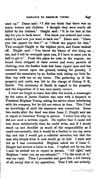
[p. 647]
used up." Dame said: I did not think that there was so many women and children. I thought they were nearly all killed by the Indians" Haight said: "It is too late in the day for you to back water. You know you ordered and counseled it, and now you want to back out." Dame said: "Have you the papers for that?" or "Show the papers for that" This enraged Haight to the highest pitch, and Dame walked off. Haight said: " You throw the blame of this thing on me, and I will be revenged upon you, if I have to meet you in hell to get it." From this place we rode to the wagons; we found them stripped of their covers and every particle of clothing, even the feather beds had been ripped open and the contents turned upon the ground, looking for plunder. I crossed the mountains by an Indian trail, taking my little Indian boy with me on my horse. The gathering up of the property and cattle was left in the charge of Bishop P. K. Smith. The testimony of Smith in regard to the property and the disposition of it was very nearly correct.
I must not forget to state, that after the attack, a messenger by the name, of James Haslem was sent with a dispatch to President Brigham Young, asking his advice about interfering with the company, but he did not return in time. This I had no knowledge of until the massacre was committed. Some two weeks after the deed was done Isaac C. Haight sent me to report to Governor Young in person. I asked him why he did not send a written report. He replied that I could tell him more satisfactorily than he could write, and if I would stand up and shoulder as much of the responsibility as I could conveniently, that it would be a feather in my cap some day, and that I would get a celestial salvation, but that the man who shrank from it now would go to hell. I went and did as I was commanded. Brigham asked me if Isaac C. Haight had written a letter to him. I replied, not by me, but I said he wished me to report in person. "All right," said Brigham, " were you an eye-witness?" "To the most of it," was my reply. Then I proceeded and gave him a full history of all, except that of my opposition. That I left out entirely.
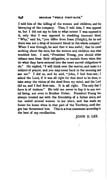
[p. 648]
I told him of the killing of the women and children, and the betraying of the company. That, I told him, I was opposed to, but I did not say to him to what extent I was opposed to it, only that I was opposed to shedding innocent blood. "Why," said he, "you differ from Isaac (Haight), for he said there was not a drop of innocent blood in the whole company" When I was through, he said that it was awful; that he cared nothing about the men, but the women and children was what troubled him. I said, "President Young, you should either release men from their obligation, or sustain them when they do what they have entered into the most sacred obligations to do." He replied, "I will think over the matter, and make it a subject of prayer, and you may come back in the morning and see me." I did so, and he said, "John, I feel first-rate; I asked the Lord, if it was all right for that deed to be done, to take away the vision of the deed from my mind, and the Lord did so, and I feel first-rate. It is all right. The only fear I have is of traitors." He told me never to lisp it to any mortal being, not even to Brother Heber. President Young has always treated me with the friendship of a father since, and has sealed several women to me since, and has made my house his home when in that part of the Territory, until danger has threatened him. This is a true statement according to the best of my recollection.
JOHN D. LEE.
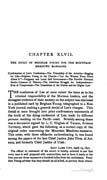
[p. 649]
CHAPTER XLVII.
THE GUILT OF BRIGHAM YOUNG FOR THE MOUNTAIN MEADOWS MASSACRE.
Confirmation of Lee's Confession—The Friendship of the Atrocity—Begging for Life—Brigham Young to the Church—" Let the Women Keep Silent About It"—Polygamy and Local Self Government—The Terrible National Strain—Lessons of History—The American Struggle for Independence—Eras of Compromise—The Conscience of the Nation and the Higher Law.
THE confession of Lee at once raised the issue as to the criminal responsibility of the Mormon leaders, and the strongest evidence of their anxiety on the subject was disclosed in a published card by Brigham Young, telegraphed to a New York journal, making a general denial of Lee's charges. This denial at once brought into print confirmatory statements of the truth of the dying confession of Lee, made by different persons residing on the Pacific coast. Notably among these was a document signed by L. C. Hughes of Tucson, Arizona Territory, which gave the following as a correct copy of the original order concerning the Mountain Meadows massacre. This order, with three affidavits authenticating it, was found among the papers of the late Chief Justice John Titus, of Arizona, and formerly Chief Justice of Utah:
SALT LAKE CITY, April 19, 1857.
The officer in command of the escort is hereby ordered to see that every man is well prepared with ammunition, and to have it ready at the time you see these teamsters a hundred miles from the settlement. President Young advises that they should be all killed, to prevent them return-
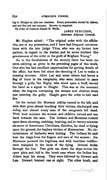
[p. 650]
ing to Bridger to join our enemies. Every precaution should be taken, and see that not one escapes. Secrecy is required.
By order of General Daniel H. Wells.
JAMES FERGUSON,
Assistant Adjutant General.
Mr. Hughes added: "The original order with the affidavits, are in my possession, and I have had frequent conversations with the late Judge Titus, who was my former law partner, in regard to the matter, and he never doubted the genuineness of the order or the guilt of Brigham Young."
As to the fiendishness of the atrocity there has been no extra coloring, as given in the preceding pages of this work. One who has had excellent opportunities for getting details of the affair, has been led since the shooting of Lee to make a running account. After Lee and some others had borne a flag of truce to the emigrants, who were induced to pass through a gully, Ike Higby, who stood upon a bluff, waved his hand as a signal to Haight. This was at the moment when the wagons containing the women and children were just entering the gully. Haight gave the order to halt and fire.
On the instant the Mormon militia turned to the left, and with their guns almost touching their victims, discharged one volley, and almost every man of the emigrants fell dead. With loud screams the women and children turned and ran back towards the men. The Indians and Mormons rushed upon them, shooting, stabbing, braining, and in twenty minutes six score of Americans, Christians, Gentiles, lay dead or dying upon the ground, the hapless victims of Mormonism. No circumstances of barbarity were lacking. The Indians bit and tore the rings from the fingers and ears of the women; the Mormons pursued the fugitives, and with heartless indifference trampled in the faces of the dying. Several broke through the line. Two girls ran down the slope across the open plain and hid in the brush near where the Indian boy Albert kept his sheep. They were followed by Stewart and Lee. Stewart brained one at sight. The other knelt, and
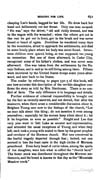
[p. 651]
clasping Lee's hands, begged for her life. He drew back her head and deliberately cut her throat. Only one man escaped. "He was," says the driver, "old and richly dressed, and was in the wagon with the wounded; when the others got out in the rear he got out in front, got in the brush and was never found or heard of again. Doubtless he wandered many days in the mountains, afraid to approach the settlements, and died in some lonely place where his body was never found. Seventeen children were spared, being, as was supposed, too young to remember. But one of them afterward, in Cedar City, recognized some of his father's clothes, and was never seen afterward. One was taken from the settlements by the Navajo Indians, and is said to be still living among them. Fifteen were recovered by the United States troops some years afterward, and sent back to the States.
The reader by referring to pages 332-3 of this book, will see how accurate this description of the terrible slaughter confirms the story as told by Mrs. Stenhouse. There is no conflict of facts. The only difference is in language and details.
Further evidence of criminal responsibility is brought out by the fact as recently asserted, and not denied, that after the massacre, when there arose a considerable discussion about it, Brigham Young sent now to the bishops of the church, "Let no man talk about this thing; do not mention it even among yourselves; especially let the women keep silent about it; let it be forgotten as soon as possible." Haight and Lee that very year went to Salt Lake as senator and representative, and attended the usual receptions of Young, and when they left, each took a young wife sealed to them by the great prophet and revelator of the Mormon church. Not one concerned in the fearful tragedy departed through fear; indeed, not one seemed to lose the least caste in the high circles of Mormon priesthood. Even forty head of cattle taken, among the spoils of the slaughter, went into what is called the "church herd." The finest stock was distributed throughout the Mormon settlements, and the breed is known to this day as the "Mountain Meadow stock."
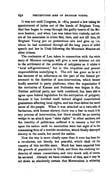
[p. 652]
It was not until Congress, in 1874, passed a law taking the appointment of juries out of the hands of Brigham Young, that fear began to creep through the guilty hearts of the Mormon leaders; and when Lee was taken into custody, and others of his associates in crime fled, then, and not till then, did Brigham Young put on pretentious airs and give up Lee, whom he had sustained through all the long years of stifled speech and law in Utah following the Mountain Meadow and other crimes.
The confession of Lee, taken in connection with the whole story of Mormon outrages, will give a new interest not only to the settlement of the problem of polygamy as it relates to "local self-government," but to the iniquities and personal responsibilities underlying it. The evil has gone as far as it has because of an adherence on the part of the federal government to the doctrine of non-intervention, which became loudly asserted in party platforms, when the organization of the territories of Kansas and Nebraska was begun in 1854. Neither political party, nor both combined, has been able to agree upon federal legislation for the extirpation of polygamy, because it has fortified itself behind alleged constitutional guarantees affecting local rights, and has thus defied the moral sense of the people. When it was attacked as a twin-relic of barbarism, with human slavery, there was a fear to touch it by any process of intervention, lest there should be an entering wedge to an attack upon "state rights" in other sections, and the timidity of politicians suffered it to remain a foul blot upon the nation until its enormities were lost sight of in the consuming fires of a terrible revolution, which finally destroyed slavery in the south, but saved the nation.
Now the way is more clearly open than it ever has been for a revolution, not bloody, but peaceful, which shall rid the country of this terrible stain. Much has been expected from the growth of population in Utah, and from the civilizing tendencies of steam connections, and very much will, of course, be secured. Already we have evidence of this, and it may be set down as absolutely certain that Mormonism is withering
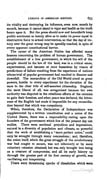
[p. 653]
its vitality and destroying its influence, even now, month by month, because it cannot stand in vigor and health as the truth bears upon it. But the press should now and henceforth keep public sentiment so keenly alive as to make its power equal in destructive force to armed intervention, so that the day of victory over the great wrong may be speedily reached, in spite of every apparent constitutional barrier.
The career of the American Nation has afforded many lessons concerning the problem of human government. The establishment of a free government, in which the will of the people should be the law of the land, was in a critical sense, experimental, and became at once hazardous by reason of predictions of failure resulting from the experience of nations whose trial of popular government had resulted in disaster and downfall. The monarchies of the Old World stood as great powers, hostile to every experiment for the elevation of the race to the clear title of self-asserted citizenship. England, the most liberal of all, was antagonized because her own authority was disputed in the rebellious efforts of the colonies to gain their freedom, and when peace was declared, the bitterness of the English had made it impossible for any reconciliation beyond that which was compulsory.
When, therefore, the Declaration of Independence was supplemented by a written constitution and a union of the United States, there was a responsibility resting upon the founders of the government which few of the present day can realize. There were sectional prejudices and impressions, natural in a diversity of population and climate, so powerful that the work of establishing a "more perfect union," could only be wrought through many concessions; and, therefore, the union itself, which the great struggle of the revolutionary war had sought to secure, was not inherently or by mere voluntary cohesion obtained, but was only brought into being as a creature of compromise, and all its early history up through the greater part of its first century of growth, was vacillating and temporizing.
There were threatening epochs of dissolution which were
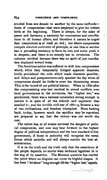
[p. 654]
avoided from one decade to another by the same methods—those of compromise—that were employed to give the nation birth at the beginning. There is always, for the sake of peace and harmony, a necessity for concessions and conciliations in all human affairs, and therefore it cannot be urged that compromise is of itself an evil; but where compromise compels absolute surrender of principle, or one idea or section has a prevailing tendency to force its own and never yield, it is despotic, and there is no remedy but in revolution. The colonies revolted because there was no spirit of just conciliation displayed toward them.
The American nation was suffered to drift into compromises which, while they temporarily bridged apparent disasters, loudly proclaimed the evils which made disasters possible; and delays and postponements only speeded the day when all compromise should be futile to avert the threatening storm. This is the record of our political history. When in 1860 after the compromising eras had resulted in armed conflicts over local governments in the territories, the "higher law," was proclaimed, there was a national conscience strong enough to sustain it in spite of all the ridicule and argument that assailed it; and the terrible civil war of 1861-5, became a war of two civilizations, and freedom triumphed. None looking back, to-day, however much the sacrifice may be regretted, are prepared to say that the victory was not worth the cost.
The nation has, at all events survived the dangers of political compromise, and now may bear forward to the highest degree of political independence and the best standard of free government, if those in authority will recognize the moral forces which underlie and will always sustain the best administration.
It is on the truth and the truth only that the conscience of the people depends, no matter what technical legalities lie in the way of its assertion. The Mormon question has reached the point where no disguise can cover its frighful shapes. It has been "let alone" long enough till the "higher law," appeals,
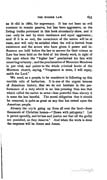
[p. 655]
as it did in 1860, for supremacy. It has not been an evil content to remain passive, but has been aggressive, as the living truths portrayed in this book abundantly show, and it can only be met by stern resistance and equal aggression; and if it is so met, the conscience of the nation will be at ease, and will only be satisfied when the evil is blotted from existence and the actors who have given it power and influence are held before the law to answer for their crimes as Lee has been held on the field of his bloody work, in sight of the spot where the "higher law" proclaimed his fate with unerring certainty; and the proclamation of Mountain Meadows is yet vital, and points to the whole criminal horde of the Mormon church, saying, "Vengeance is mine, I will repay, saith the Lord."
We need, as a people, to be consistent in following up this terrible relic of barbarism. It is one of the urgent lessons of American history, that we do not hesitate in the performance of a duty which is no less pressing than was that which called the nation to arms—less powerful than slavery it is none the less baneful. The moral obligation that it should be removed, is quite as great as any that has rested upon the American people.
Already the cry is going up from all over the land—from thousands of Christian homes—"Down with polygamy! Let it perish speedily, and let law and justice see that all the guilty are punished, as they deserve." And when the work is done the response will be Amen and Amen.